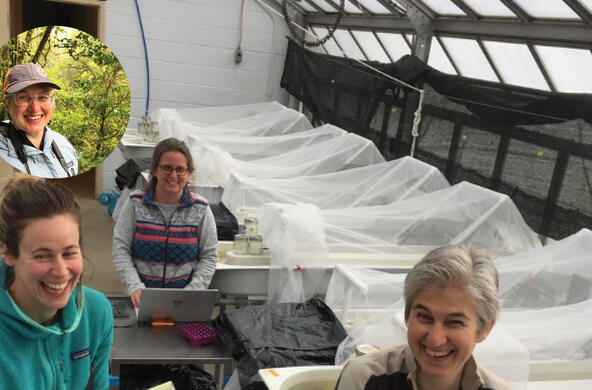- Profile
- Videos & Podcasts
- Past Projects
- Publications
Emma Rosi advanced our understanding of how land use, urbanization, and climate change shape freshwater ecosystems, with projects exploring environmental contaminants such as pharmaceutical and personal care products, aging wastewater infrastructure, environmental implications of agricultural GMOs, and the effects of dams.
Rosi directed the Baltimore Ecosystem Study (BES), a National Science Foundation Long Term Ecological Research site. As part of BES, Rosi explored the role that failing wastewater infrastructure plays in polluting streams and creating antibiotic-resistant microbes. She also revealed how prescription and illicit drugs that enter our waterways impact freshwater quality and aquatic life.
In addition to her work on human-driven threats to freshwaters, Rosi co-led a long-term project, in collaboration with Yale University, investigating how wildebeest and hippos shape the food web in the Kenyan reach of Africa’s Mara River.
Rosi is a leader in the field of freshwater science, is a Fellow of the Society for Freshwater Science and has conducted research on the role of emerging contaminants shaping these systems. Rosi served on the US Environmental Protection Agency’s Science Advisory Board and her research has implications for our understanding of anthropogenic stressors on freshwater ecosystems.
-

Artificial Stream Facility
-

Nutrient Cycling in Large River Ecosystems
-
Modification of Rivers for Hydropower Generation
-

Crop Selection Consequences for Stream Ecosystem Function
-

Effects of Global Climate Change on Stream Ecosystems
-

Baltimore Ecosystem Study
A ground-breaking urban ecology project, the Baltimore Ecosystem Study investigates the ecological, cultural, and economic forces that shape the environmental quality of urbanized areas.
-

Mara Project
-

Effects of Novel Contaminants, Such as Pharmaceuticals, on Stream Ecosystems
The widespread use of novel contaminants, such as pharmaceuticals, have unknown consequences for stream ecosystems.





